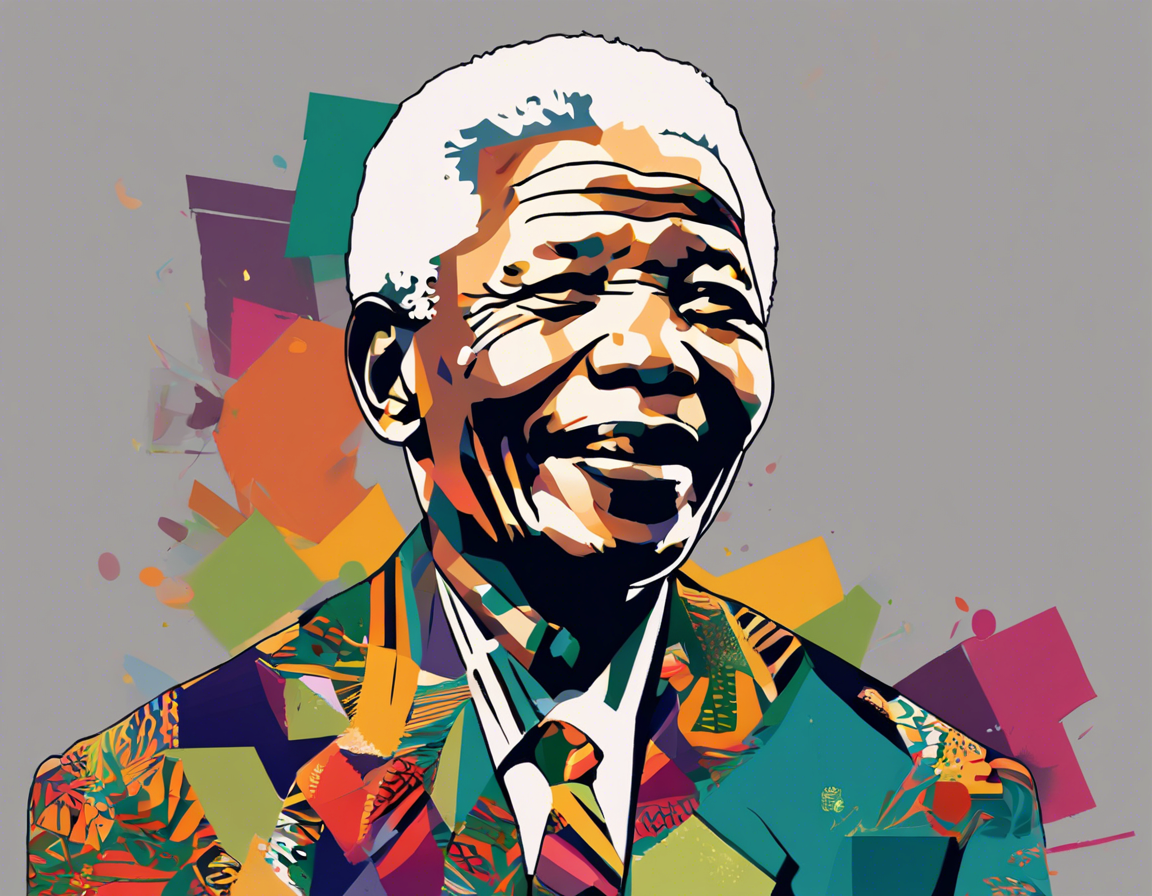Nelson Mandela – a name synonymous with resilience, courage, and unwavering dedication to justice and equality. As one of the most iconic figures in the fight against apartheid in South Africa, Mandela’s legacy extends far beyond his years on this earth. His impact not only shaped the course of history in his homeland but also inspired countless individuals and movements around the world to strive for a better, more just society. In this article, we will delve into the life, achievements, and lasting influence of this revolutionary leader.
Early Life and Activism
Born on July 18, 1918, in the village of Mvezo, Nelson Rolihlahla Mandela was destined for greatness. He embraced his Xhosa heritage and received a quality education, becoming the first in his family to attend school. It was during his time at the University of Fort Hare and the University of Witwatersrand that Mandela’s political consciousness was awakened, leading him to join the African National Congress (ANC) in the 1940s.
Mandela’s early activism focused on nonviolent resistance to apartheid policies, but the Sharpeville Massacre in 1960, where 69 peaceful protesters were killed by the police, marked a turning point. The ANC, banned by the South African government, turned to armed resistance, and Mandela played a key role in forming the militant wing, Umkhonto we Sizwe (“Spear of the Nation”).
Imprisonment and Resilience
In 1962, Mandela was arrested and sentenced to life in prison for his anti-apartheid activities. His 27 years behind bars, including 18 years on Robben Island, tested his resolve and commitment to the cause. Despite harsh conditions and physical labor, Mandela remained a symbol of hope and defiance, refusing to compromise his principles for freedom. His eloquent speeches and letters from prison resonated with people worldwide, shining a spotlight on the injustices of apartheid.
Apartheid’s End and Presidential Legacy
Mandela was finally released in 1990, after intense international pressure and internal negotiations led to the unbanning of the ANC. His freedom marked the beginning of a new era for South Africa, as Mandela played a crucial role in dismantling apartheid and guiding the country towards reconciliation and democracy. In 1994, he was elected as South Africa’s first black president in the country’s first fully representative democratic election.
During his presidency, Mandela focused on nation-building and healing a fractured society. He initiated the Truth and Reconciliation Commission to address the atrocities of the past and promote forgiveness and understanding. Mandela’s leadership style, characterized by patience, empathy, and inclusivity, earned him respect and admiration globally. He stepped down from the presidency in 1999, leaving behind a legacy of unity and peace.
Global Impact and Humanitarian Work
Beyond his role in South Africa, Mandela continued to champion human rights and social justice on the international stage. He advocated for HIV/AIDS awareness and treatment, children’s rights, and conflict resolution. In 2009, the United Nations declared July 18, Mandela’s birthday, as Nelson Mandela International Day to honor his legacy and promote community service.
Mandela’s enduring impact can be felt in various fields, from education and healthcare to politics and civil rights. His values of equality, forgiveness, and dignity serve as a guiding light for future generations striving to create a more just and equitable world.
Legacy and Inspirational Quotes
As we reflect on Nelson Mandela’s life and legacy, it’s essential to draw inspiration from his words of wisdom and courage:
- “I learned that courage was not the absence of fear, but the triumph over it. The brave man is not he who does not feel afraid, but he who conquers that fear.”
- “Education is the most powerful weapon which you can use to change the world.”
- “For to be free is not merely to cast off one’s chains, but to live in a way that respects and enhances the freedom of others.”
Mandela’s spirit lives on in these quotes, challenging us to confront our fears, empower ourselves through knowledge, and uplift others in our pursuit of freedom and justice.
Frequently Asked Questions (FAQs)
Q1: What was Nelson Mandela’s role in the fight against apartheid?
A1: Mandela was a key figure in the anti-apartheid movement in South Africa, advocating for equal rights and justice for all citizens. He played a leading role in the ANC’s resistance to apartheid policies and was instrumental in the eventual dismantling of the discriminatory system.
Q2: How did Nelson Mandela’s time in prison impact his leadership style?
A2: Mandela’s imprisonment solidified his commitment to his principles and values. It also allowed him to reflect on the importance of forgiveness and reconciliation, shaping his inclusive and empathetic leadership style upon his release.
Q3: What are some of Nelson Mandela’s most significant achievements as president of South Africa?
A3: During his presidency, Mandela focused on reconciliation, nation-building, and social justice. He established the Truth and Reconciliation Commission, promoted equality and human rights, and worked towards healing the wounds of apartheid.
Q4: What is Nelson Mandela’s legacy in the global context?
A4: Mandela’s legacy extends beyond South Africa and resonates globally. His advocacy for peace, equality, and justice continues to inspire individuals and movements around the world. His leadership and values serve as a beacon of hope for those striving for a better future.
Q5: How can we honor Nelson Mandela’s legacy today?
A5: We can honor Mandela’s legacy by upholding his values of equality, forgiveness, and dignity in our daily lives. Engaging in community service, promoting social justice, and advocating for human rights are all ways to carry forward Mandela’s vision of a more just and equitable world.

